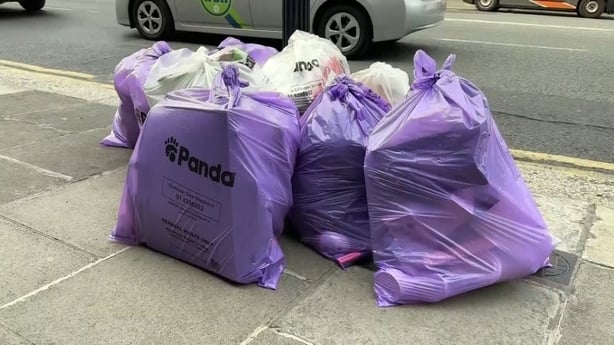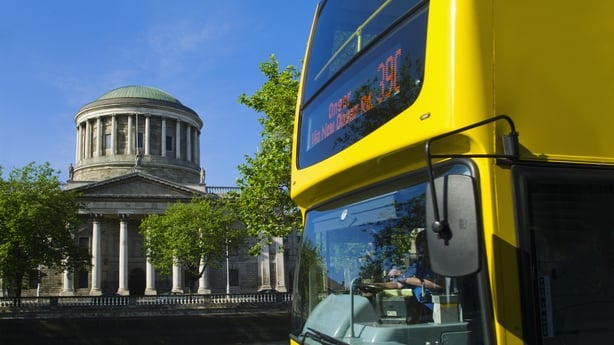There are not enough gardaí policing the streets of Dublin, according to the Chief Executive of Dublin City Council.
Speaking on RTÉ's Today with Claire Byrne, Richard Shakespeare said there were more than 100 gardaí deployed onto the streets of Dublin this week, but he thinks there needs to be more.
Mr Shakespeare said while the council works very closely with gardaí across a range of areas, it should "come as no surprise" that the council is of the view there are not enough gardaí.
He said he thought the force is "on that journey" to having larger numbers.
"You cannot police a capital city on overtime," Mr Shakespeare said, adding that he believed recruitment was going well to increase garda numbers.

Mr Shakespeare was appointed as CEO of the local authority last December, following the resignation of Owen Keegan in September 2023.
Prior to that appointment he was the Assistant Chief Executive of DCC.
In relation to the issue of litter in the capital, he said there are many issues that feed into it.
"The black bags are very vulnerable to our good friend the seagull"
"It's not just people dropping litter on the ground," he said.
"The black bags are very vulnerable to our good friend the seagull, and when the bags get attacked - it can just take half a minute - a street that was perfectly clean before looks in bits, and I don't have the staff resources to actually have somebody standing on the street corner," he added.
Mr Shakespeare said a pilot project involving a sturdier bin bag has been undertaken over the last year on South William Street, adding that he hopes to roll it out across the city.
He also said that as a city council, they are increasing their staff resources by 20%, "so we'll now have about 600 [staff] in certain areas working 24 hours a day, and in the outer areas and business areas - eight hours a day".

Asked about the possibility of pubs and clubs being open until 6am, Mr Shakespeare said it is part of a modern capital city, although it will present challenges.
"From my perspective we will have to ramp up the cleansing at that sort of pivotal period," he said.
He said the transport system will be challenged, as well as the HSE and the ambulance service.
The council recently recruited a nighttime economy adviser, who will be engaging with all the various businesses to see how a vibrant nighttime economy can be delivered, he said.
The evening and nighttime economy is about having a functional capital city where more things which are not alcohol-related are open, he added.
City needs to 'start walking the walk' on transport
Asked about the Dublin City Transport Plan and the intention to stop traffic from driving through the city, Mr Shakespeare said: "We did all sign up to a commitment to have the traffic reduced by 40% by 2028 and we need to start walking the walk."
Businesses in the city centre have claimed that the plan will result in a drop in footfall as public transport is not adequate to facilitate it.

Mr Shakespeare said he is in favour of the plan and he would like to see a city where he can walk unfettered by large numbers of cars from Grafton Street up to Parnell Street.
He said it will be uncomfortable for people who drive through the city centre to go somewhere else and it will be a little bit more challenging for people who want to drive into the city to go shopping.
However, he said he wants a reduction of cars in the city centre and wants to meet targets in terms of reducing emissions.
Read more: Which areas of Dublin city are in roads plan?
Mr Shakespeare also said he wants to reorganise the housing department within Dublin City Council.
"At the moment, we don't build a whole lot directly...our direct delivery is probably one of our weakest streams.
"One of the things I've done and am in the process of doing is to reorganise and refocus the housing department."
He said the council will be contracting work out and although he does not see a situation where Dublin City Council will be employing more builders, he thinks there will be an opportunity for the local authority to expand that type of workforce when it comes to housing maintenance and turning voids around.
